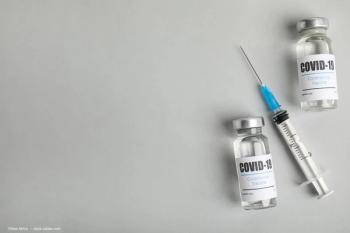
COVID-19: Preparations key for ophthalmologists
As the United States enters its first week of widespread school closures and restrictions on restaurants, bars and other businesses, the COVID-19 pandemic remakes daily life for millions of Americans, and ophthalmologists helping prevent the spread of the disease.
While COVID-19 is a significant challenge for the entire healthcare system, physician practices face a unique set of issues themselves. They must balance between the acute needs of their patients, while also managing their staff through a major crisis.
The coronavirus, which causes COVID-19, has killed more than 70 people and infected more 4,000 more in the United States. Every state except West Virginia has reported at least one case of the virus, according to the Centers for Disease Control (CDC).
As the United States enters its first week of widespread school closures and restrictions on restaurants, bars and other businesses, the COVID-19 pandemic remakes daily life for millions of Americans, and the medical community is helping prevent the spread of the disease.
Getting a handle on the virus will not be easy, Robert McLean, MD, an internist and president of the American College of Physicians, told Ophthalmology Times’® sister publication, Medical Economics.®
McLean said physicians need to ensure that they keep their staff, colleagues, and patients safe.
“Since there are such concerns over the contagious nature of COVID-19, physicians are steering patients with specific symptoms of fever and cough and concerns over possible COVID-19 infection to not come into the office,” he said. “The practice staff need reassurance that the physicians are doing everything possible to ensure staff safety while trying to deliver appropriate care to patients."
Ophthalmology practice is proactive
Daniel Terveen, MD, an ophthalmologist with Vance Thompson Vision, which has six locations across the upper Midwest, said the offices have taken “significant measures” to reduce the risk of transmission.
Dr. Terveen said the office called every patient on its clinic schedule over the next months and instructed them to let them know if they have traveled through an airport in the last 14 days, and is offering to reschedule appointments that aren’t urgent.
The locations have one team member at each door checking temperatures and asking travel or sick contact questions. If anyone has an elevated temperature, they are urged to contact their primary care provider. The offices also have increased cleaning procedures for common areas and are disinfecting the atrium and door handles frequently throughout the day.
As a result of the virus, Dr. Terveen said patient traffic has been impacted.
“We have seen maybe a 5-10% reduction in clinic volume, but overall volume has not been impacted,” he said. “The upper Midwest has not seen significant disease burden at this time.”
As a result, Dr. Terveen said the offices have instituted reasonable and proactive measures to protect its patients and team members.
"Ultimately our primary concern is doing the right thing and we are focused on that. For ophthalmologists in the practice, travel plans also have been adjusted. “All of the doctors have changed both international and national travel plans due to the virus,” Dr. Terveen said. “We have also instituted a travel policy for all employees.”
CDC guidances
On Sunday, the CDC issued guidance on Sunday to cancel or postpone events such as conferences, weddings, parades, sporting events and concerts that could draw crowds of 50 or more people for eight weeks.
“This recommendation is made in an attempt to reduce introduction of the virus into new communities and to slow the spread of infection in communities already affected by the virus,” the CDC said in a statement.
The guidance does not apply to the day-to-day operation of organizations such as schools and businesses. In response, state governments across the country followed the guidances, ordering eateries and bars to close, except for carryout and delivery service.
The epicenter of the disease has now shifted to Europe, the World Health Organization said in a statement.
"More cases are now being reported [in Europe] every day than were reported in China at the height of its epidemic," WHO Director-General Tedros Adhanom Ghebreyesus said in a statement Monday.
The virus has spread most rapidly in Italy, which is now reporting some 25,000 cases and 1,800 deaths. More than 2,300 people in the country have recovered from COVID-19, according to the WHO.
Newsletter
Don’t miss out—get Ophthalmology Times updates on the latest clinical advancements and expert interviews, straight to your inbox.





























